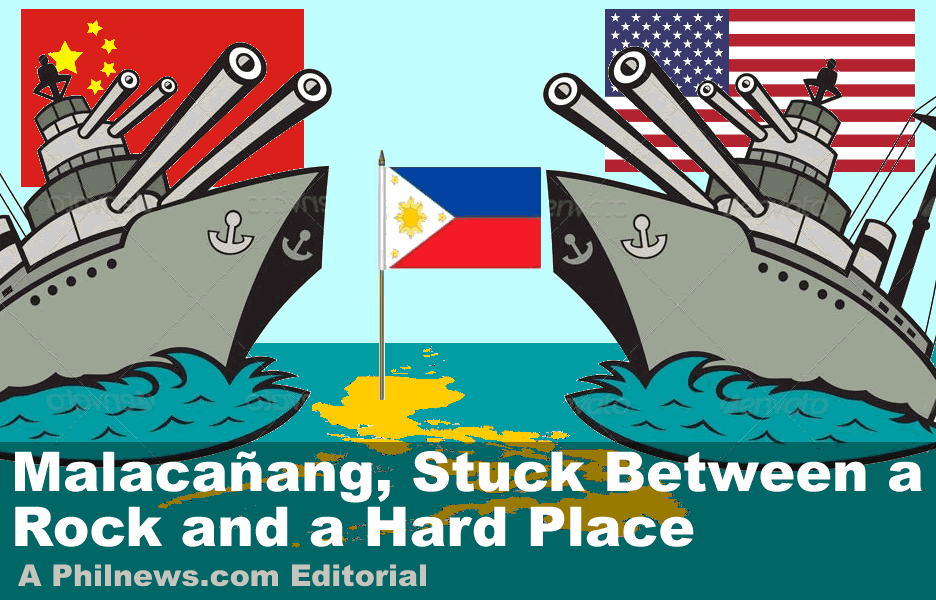 Composite graphic depicting a U.S. - China standoff in Philippine waters. PNL graphics
Composite graphic depicting a U.S. - China standoff in Philippine waters. PNL graphics

alacañang's decision will be problematic regardless of whether it allies with China or the United States. The U.S., for its part, appears to be gaining support in the region as China's sweeping claims in the South China rub our Southeast Asian neighbors the wrong way. The Duterte administration initially sided with Beijing, hoping to extract concessions and loans for its Build! Build! Build! development plan. It even turned its back on the country's sweeping tribunal victory in the Hague—an unprecedented ruling that nullified China's Nine-Dash Line claim—to please Beijing.
However, when China's big-ticket promises failed to materialize, Malacañang began having second thoughts about its supposed ally. To make matters worse, the Chinese started mistreating the Filipinos right from the start. Our fishermen were constantly harassed and bullied in waters that, according to the Hague ruling, belonged to us.
What tipped the balance in favor of the U.S. was the fact that our military never fully embraced China as an ally. For over half a century, Filipinos in uniform fought and died battling communists. No way could Malacañang change the military's mindset overnight.
However, siding with the U.S. also has its own set of problems. Unlike Beijing, Washington does not always look away at Malacañang's misdeeds. The U.S. holds our leaders to a higher standard. They are forced to adhere to international norms. This kind of oversight can quickly become problematic for Malacañang, which abhors outside interference of any kind.
If it had a choice, many believe Malacañang would choose China over the United States. Although Filipinos in general, and the military in particular, might find China as an ally hard to accept, Malacañang would have far greater leeway to do what it wants within its borders. Also, China's laissez-faire attitude could prove quite profitable for the more unscrupulous amongst us.
Some argue that Malacañang is now siding with the U.S. only because it has no other choice. Being part of the U.S. alliance—which includes Japan, South Korea, Australia, and most ASIAN member states—means that Malacañang has to adhere to international norms. Washington, D.C., the International Criminal Court, and the Commissioner on Human Rights will all want a say in keeping Malacañang on a short leash. Such constraints could complicate matters for many Philippine politicians.
The question is this: will Malacañang accede to the desires of its military—and the majority of Filipinos—and develop a lasting and robust alliance with the United States? Or will it run back into China's arms the first chance it gets? Only time will tell, and that time is fast approaching. Published 7/18/2020
|